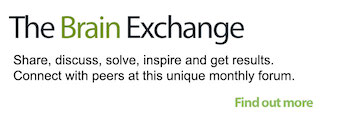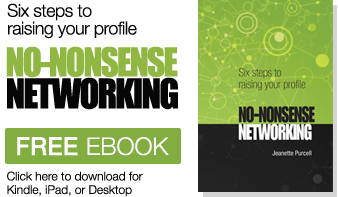
Showing all pages regarding experience.
Privacy Policy
What is this Privacy Policy for?
This privacy policy is for this website www.jeanettepurcell.com and served by Jeanette Purcell Associates and governs the privacy of its users who choose to use it.
The policy sets out the different areas where user privacy is concerned and outlines the obligations & requirements of the users, the website and website owners. Furthermore the way this website processes, stores and protects user data and information will also be detailed within this policy.
The Website
This website and it’s owners take a proactive approach to user privacy and ensure the necessary steps are taken to protect the privacy of its users throughout their visiting experience. This website comply’s to all UK national laws and requirements for user privacy.
Use of Cookies
This website uses cookies to better the users experience while visiting the website. Where applicable this website uses a cookie control system allowing the user on their first visit to the website to allow or disallow the use of cookies on their computer / device. This complies with recent legislation requirements for website’s to obtain explicit consent from users before leaving behind or reading files such as cookies on a users computer / device.
Cookies are small files saved to the users computers hard drive that track, save and store information about the users interactions and usage of the website. This allows the website, through it’s server to provide the users with a tailored experience within this website.
Users are advised that if they wish to deny the use and saving of cookies from this website on to their computers hard drive they should take necessary steps within their web browsers security settings to block all cookies from this website and it’s external serving vendors.
This website uses tracking software to monitor it’s visitors to better understand how they use it. This software is provided by Google Analytics which uses cookies to track visitor usage. The software will save a cookie to your computers hard drive in order to track and monitor your engagement and usage of the website but will not store, save or collect personally identifiable information. You can read Google’s privacy policy here for further information [http://www.google.com/privacy.html ].
We also use Google’s Interest-based advertising and audience data to monitor visitors’ age, gender and interests. This too is anonymised and used purely to reveal broad insights about our audience.
You can edit the personal information used by Google Analytics or opt out of sharing this information entirely by following this link. Alternatively, you can download a plugin for your browser and opt out of Google Analytics entirely.
Other cookies may be stored to your computers hard drive by external vendors when this website uses referral programs, sponsored links or adverts. Such cookies are used for conversion and referral tracking and typically expire after 30 days, though some may take longer. No personal information is stored, saved or collected.
Contact & Communication
Users contacting this website and/or it’s owners do so at their own discretion and provide any such personal details requested at their own risk. Your personal information is kept private and stored securely until a time it is no longer required or has no use, as detailed in the Data Protection Act 1998. Every effort has been made to ensure a safe and secure form to email submission process but advise users using such form to email processes that they do so at their own risk.
This website and it’s owners use any information submitted to provide you with further information about the products / services they offer or to assist you in answering any questions or queries you may have submitted. This includes using your details to subscribe you to any email newsletter program the website operates but only if this was made clear to you and your express permission was granted when submitting any form to email process. Or whereby you the consumer have previously purchased from or enquired about purchasing from the company a product or service that the email newsletter relates to. This is by no means an entire list of your user rights in regard to receiving email marketing material. Your details are not passed on to any third parties.
Email Newsletter
This website operates an email newsletter program, used to inform subscribers about products and services supplied by this website. Users can subscribe through an online automated process should they wish to do so but do so at their own discretion. Some subscriptions may be manually processed through prior written agreement with the user.
Subscriptions are taken in compliance with UK Spam Laws detailed in the Privacy and Electronic Communications Regulations 2003. All personal details relating to subscriptions are held securely and in accordance with the Data Protection Act 1998. No personal details are passed on to third parties nor shared with companies / people outside of the company that operates this website. Under the Data Protection Act 1998 you may request a copy of personal information held about you by this website’s email newsletter program. A small fee will be payable. If you would like a copy of the information held on you please write to the business address at the bottom of this policy.
Email marketing campaigns published by this website or it’s owners may contain tracking facilities within the actual email. Subscriber activity is tracked and stored in a database for future analysis and evaluation. Such tracked activity may include; the opening of emails, forwarding of emails, the clicking of links within the email content, times, dates and frequency of activity [this is by no far a comprehensive list].
This information is used to refine future email campaigns and supply the user with more relevant content based around their activity.
In compliance with UK Spam Laws and the Privacy and Electronic Communications Regulations 2003 subscribers are given the opportunity to un-subscribe at any time through an automated system. This process is detailed at the footer of each email campaign. If an automated un-subscription system is unavailable clear instructions on how to un-subscribe will by detailed instead.
External Links
Although this website only looks to include quality, safe and relevant external links users should always adopt a policy of caution before clicking any external web links mentioned throughout this website.
The owners of this website cannot guarantee or verify the contents of any externally linked website despite their best efforts. Users should therefore note they click on external links at their own risk and this website and it’s owners cannot be held liable for any damages or implications caused by visiting any external links mentioned.
Adverts and Sponsored Links
This website may contain sponsored links and adverts. These will typically be served through our advertising partners, to whom may have detailed privacy policies relating directly to the adverts they serve.
Clicking on any such adverts will send you to the advertisers website through a referral program which may use cookies and will tracks the number of referrals sent from this website. This may include the use of cookies which may in turn be saved on your computers hard drive. Users should therefore note they click on sponsored external links at their own risk and this website and it’s owners cannot be held liable for any damages or implications caused by visiting any external links mentioned.
Social Media Platforms
Communication, engagement and actions taken through external social media platforms that this website and it’s owners participate on are custom to the terms and conditions as well as the privacy policies held with each social media platform respectively.
Users are advised to use social media platforms wisely and communicate / engage upon them with due care and caution in regard to their own privacy and personal details. This website nor it’s owners will ever ask for personal or sensitive information through social media platforms and encourage users wishing to discuss sensitive details to contact them through primary communication channels such as by telephone or email.
This website may use social sharing buttons which help share web content directly from web pages to the social media platform in question. Users are advised before using such social sharing buttons that they do so at their own discretion and note that the social media platform may track and save your request to share a web page respectively through your social media platform account.
Shortened Links in Social Media
This website and it’s owners through their social media platform accounts may share web links to relevant web pages. By default some social media platforms shorten lengthy url’s [web addresses] (this is an example: http://bit.ly/zyVUBo).
Users are advised to take caution and good judgement before clicking any shortened url’s published on social media platforms by this website and it’s owners. Despite the best efforts to ensure only genuine url’s are published many social media platforms are prone to spam and hacking and therefore this website and it’s owners cannot be held liable for any damages or implications caused by visiting any shortened links.
Resources & Further Information
- Data Protection Act 1998
- Privacy and Electronic Communications Regulations 2003
- Privacy and Electronic Communications Regulations 2003 – The Guide
- Twitter Privacy Policy
- Facebook Privacy Policy
- Google Privacy Policy
- Linkedin Privacy Policy
- Mailchimp Privacy Policy
Free Website Privacy Policy written by Jamie King Media – SEO Pembrokeshire © 2013 – v.2.0 April 2013
Why coaching works

Some people baulk at the cost of coaching but, when you consider the value of coaching when compared to other forms of training, it suddenly becomes an investment worth making. Why does coaching work?
- It’s a one-to-one exercise where all the attention and focus is on you. You get to decide what you want to achieve and what specific topics you want to discuss at each session.
- You get to think aloud and talk through issues with an expert who will guide you through the problem-solving process. No one is judging you and there are no interruptions or distractions for the duration of your session.
- You get an opportunity to try out new ideas or behaviours in a supportive environment. Rehearse a presentation or a difficult conversation and get some professional feedback and constructive suggestions for improvement.
- You can measure your progress. Any good coach will talk to you about what you want to achieve by the end of the programme and how success will be measured. People assume that the benefits of coaching or training can’t be measured – they can!
Choose your coach wisely. They should be someone with real business experience as well as coaching experience. And you should feel entirely comfortable with them – ask for a trial session before you commit. With the right coach you will quickly recognise the benefits of coaching – it’s a small investment for a significant return.
How personal impact can make the difference

As a Trustee of a Community Trust in South East London I was recently involved in the appointment of a full-time youth worker. There was a lot of interest in the position and interviews were held with six short-listed candidates. The interview panel asked each candidate the same questions and carefully scored each person against their ability to meet the requirements of the job. At the end of a long day two candidates stood out from the others and both had achieved exactly the same score. How to choose between them?
The interview panel began to discuss which candidate came across best in the interview. We discussed ‘likeability’ – something that’s hard to define but often referred to as ‘personal impact’. For two candidates, both equal in terms of their skills and experiences, it was the positive impact they made with the panel that made the crucial difference. What does personal impact mean and how do we know it when we see it? There are probably three key factors that help to achieve personal impact:
- A smile is so important – it conveys warmth and enthusiasm. When you smile you are letting others know that you are feeling positive and enjoying their company.
- Positive body language. The candidate we interviewed who sat back in the chair with their arms folded was less engaging than the one who sat forward keeping an open posture. A little animation when you are talking helps to demonstrate eagerness and interest in the discussion.
- Authenticity. People who come across as genuine, honest and human almost always generate a positive response from others. Be yourself, admit your weaknesses (we all have them!), show genuine concern and interest in what you do. Others will believe in you and warm to you as a result.
Personal impact is not easy to define, but with some attention to the way you look, move and talk it can be acquired. What’s more, it is as important to a youth worker as it is to any leader. Skills and experience can get you so far, personal impact makes the difference.
DON’T MISS THE JPA MASTER CLASS “PERSONAL IMPACT AND CONFIDENT NETWORKING” ON 10 DECEMBER 2013.
VISIT www.jeanettepurcell.com/jpa-master-class-series/ FOR MORE DETAILS.
JPA Master Class Series
The JPA Masterclass Series has ended for this year.
Overview
You don’t have to be an extrovert or the life and soul of the party to have personal impact. But any leader will tell you that success in business requires a high level of confidence, polish and professionalism. This personal impact Master Class will give you the skills and techniques you need to present yourself in a positive way and to become a confident networker. Delivered by Jeanette Purcell, international leadership specialist and experienced public speaker, the course is practical and fun. Jeanette’s promise is that you will leave the Master Class with a range of tools and ideas that can be applied immediately and will make a positive difference to the way you work.
Who should attend?
This Master Class is for managers and senior partners working in large or small organisations, consultants and anyone who needs to promote themselves externally or internally. If you network, talk to clients or simply need to make a more positive impact with people, you will benefit from this Master Class.
What does it cover?
- Understanding the power of networking and the benefits of building better business connections.
- Myth-busting. Overcoming obstacles and challenging common perceptions of networkingskills
- Maximising your personal impact. Walking and talking with confidence.
- Presenting yourself in a powerful, memorable and positive way
- Networking ‘know-how’. The tools and techniques that help you to build better networks.
“My objective is to persuade people that the investment they make in developing their networks will result in tangible rewards and benefiits. I have delivered this Master Class to a range of international audiences and the feedback is overwhelmingly positive. I think what people appreciate is the practical nature of the course and my ability to make networking an exciting prospect rather than a daunting chore. As one delegate said recently: ‘You were inspirational. I have already put what I have learnt into practice and it worked!”
What will I gain as a result of attending the Master Class?
- A new level of self-awareness about what makes you unique and interesting to others
- The ability to present yourself in a powerful and memorable way
- New techniques for communicating and interacting effectively
- The confidence to network and build successful business relationships
- A plan for applying what you have learnt and achieving a sustainable improvement
What will I take away?
Training that lasts – A plan that will enable you to apply all that you’ve learned on an ongoing basis…
A Senior Manager for a multi-national firm attended the Master Class in 2013 and applied their new networking skills to address the fall out from a UK-wide restructuring exercise. Internal networks and a mentoring initiative was established to rebuild critical business connections, re-energise staff and support information exchange between business units. These initiatives resulted in significant improvements in efficiency, better communication and higher levels of staff engagement across the company.
FREE 15 minute 1 to 1 follow up coaching session.
How much does it cost?
The Master Class fee is £235 per delegate payable at the time of booking.
The fee is all inclusive and covers all materials and refreshments including a three course buffet lunch.
Multiple Bookings Discount
Where multiple bookings are made the discounted fee of £195 per delegate will apply regardless of when the booking is made.
Where is the Master Class being held?
The Grand Connaught Rooms, 61-65 Great Queen St, London WC2B 5DA. The venue is easily accessible and close to all London transport links. The nearest tube is Holborn which is served by the Central and Piccadilly lines.
Click here to book your tickets
Coming up in JPA’s Master Class Series
Effective communication
– anyone, anytime, anywhere
8 July 2014
5 essential leadership lessons
16 September 2014
Working effectively with Trustees
4 November 2014
JPA Master Class Policy
JPA accepts firm bookings through the JPA website – in making such bookings clients accept our bookings and cancellation policy.
Provisional bookings may be made but must be confirmed at least 30 days before the course date or else they will be considered a firm booking and will be subject to our standard booking and cancellation policy.
Confirmed bookings may be cancelled up to 21 days from the course start date without any penalty. Cancellation within 21 days of the course start date will mean that the full fee is payable for the course and there will be no refund. We will however consider transferring your place to another course date if a suitable course and place is available.
Name substitutions can be made at any time before the course without penalty.
Only one discount can be used per booking.
JPA does not store credit card details nor do we share customer details with any 3rd parties.
JPA reserves the right to cancel a course if insufficient bookings have been received. Delegates will be offered an alternative date or a full refund of the course fee. We reserve the right to make changes to the programme and the right to refuse any booking.
How to create a winning bid
When did you last win a major piece of work without having to put in a bid? Doesn’t happen very often does it? At the very least you or your company will probably be used to writing proposals on a regular basis, or submitting statements about why you should be given the job.
Not many years ago tendering was largely associated with large supplier contracts or with public sector procurement. Now, bidding for work is common practice for most organisations. In a heavily regulated environment, companies are under pressure to manage risk, act with integrity and to demonstrate transparency in all their dealings – especially with their suppliers. Jobs for the boys are a thing of the past. It takes more than a quick chat and a handshake to win work these days.
Often the task of preparing a proposal or bid falls to staff who lack the required training and skills. They may be senior managers, they may be experts in their own field, but have they had any experience in bidding? Do they really know what makes a winning bid? For such a crucial task it is surprising that companies don’t spend more time developing staff in this area. Putting together a tender is not difficult, but knowing more about the process, the pitfalls and what makes a winning bid can make all the difference.
There is always the context to take into account when helping businesses to create winning bids. What is the company trying to achieve? How is the company positioned? What are its strengths and how are they communicated? When I am working with teams or individuals on the subject of bidding, the answers to these questions inform the design, content and presentation of the bid document. There are also some general tips and techniques which help to create the perfect bid. My top ten tips are at the end of this article. If I had to highlight one tip it is the importance of asking questions. In my experience people are reluctant to enter into a dialogue with a buyer or prospective client during the bidding process. They are even more anxious about asking questions, fearing this will be taken as a sign or ignorance or weakness. On the contrary, asking intelligent, questions demonstrates that you are interested and want to ensure that your bid is relevant, useful and informative. It also helps you to build a relationship with the buyer. And evidence shows that buyers tend to give the job to people they know they can work with.
The old boy network may be a thing of the past, but relationships still matter! Download JPA’s Top Ten Tips for creating a winning bid here: Top Tips for creating a winning bid
How do you think you did?
After running a residential weekend on Leadership Skills for some MBA students I was keen to make sure they applied their learning when they got back to work. I wanted them to commit to at least one action that would change the way they work and improve their management skills. “So what are you going to differently tomorrow?” I asked. The responses were many and various but were not specific enough for my liking.
“I’m going to try to listen more and talk less” one said. “I’m going to improve the way we make decisions in my organisation” offered another. These were encouraging resolutions but were not specific enough for my liking. Then one of the quieter members of the group said “Well from now on, whenever I am giving feedback or carrying out an appraisal, I’m going to start the conversation with ‘How do you think you did?’”. It’s a little thing, but her words made my heart sing!
The weekend course had involved a lot of group work where individuals gave feedback to each other on their performance after each exercise. At first they approached this by immediately reeling off a list of what they thought the other person did well and what they didn’t do well (sadly the emphasis was nearly always on the negatives). However, I had been encouraging them to start each feedback session with a question: “How do you think you did?”. Gradually, they got the hang of it and began to see the benefits of this approach.
There are many situations where managers are called on to comment on the performance of their staff. It could involve one of those difficult conversations where concerns about performance need to be raised. It might be part of a performance appraisal or it could just be because someone has asked you for feedback. If the feedback is positive the conversation is fairly straightforward. If not, the approach needs careful handling.
There are two main advantages of starting with the question “How do you think you did?”:
- If things have gone wrong or there are performance problems there is a good chance that the other person will talk about these problems in their response to your question. How much better is it for them to raise the issues rather than you? Immediately you have been offered a way in to a discussion about why these problems came about and how they can be addressed. Yes, I know that there are some people who will never own up to mistakes or short comings but in my experience most people are reasonably self-aware and, given the right environment, they are relatively honest.
- If the performance issues are identified and raised by the other person, rather than you, there is a much better chance of them taking responsibility for the problem and doing something about it. When a person is simply told that they’ve got something wrong, even though they might agree, they are more likely to question their manager’s judgement and go on the defensive. In this situation they will feel much less inclined to address the issues, and so improving their performance becomes an uphill battle.
Giving feedback and managing performance involves a lot more than opening the discussion with a question. But that question can make difficult conversations a whole lot easier. I loved my group member for giving herself a simple practical action that she can implement immediately at work. Just six words – “How do you think you did?” – can be surprisingly effective.
Women in the Board Room

(Firs published 9 March 2011)
Last month the UK Employers’ Federation, the CBI, called for more proactive steps to redress the gender imbalance in Board Rooms. A report from Cranfield University had found that only 12.5% of Board positions in the UK are held by females and that there had been little change in this proportion over recent years. To its credit, the CBI argued that, with women accounting for half the population and making up just under half of the workforce, their continuing under representation at Board level was unacceptable. Indeed, there is strong evidence to suggest that companies with more diverse Boards tend to perform better than others. Instinctively we can appreciate how a more diverse top team, involving different perspectives, attitudes and experiences is likely to make for better, more robust, decision-making.
But the CBI’s proposal, that UK listed companies should be required to achieve internally set targets for female Board participation, is too simplistic a response to a complex issue. Enforcement through legislation only aggravates the ‘political correctness gone mad’ lobby – who would argue that, in bending over backwards for women, we end up with female executives who achieve their senior positions not through merit, but solely because of their gender. In fact targets and quotas for achieving diversity at the top may redress the gender imbalance but such measures are unlikely to change attitudes or workplace practices that lead to inequality in the first place. The reality is that there are many reasons why women are in the minority at the top and each reason requires a particular and different response.
As Chief Executive of the Association of MBAs I became particularly interested in understanding why there were so few women MBA students. Women account for between just 25-30% of students taking MBA courses anywhere in the world and this figure hasn’t changed much in the last 10 years. My investigations and research into the issue failed to establish a single explanation for the low number of women MBAs. But there is evidence to support a fascinating range of possible causes:
- MBA students tend to be in their late 20s and early 30s – this is not an ideal time for women to commit to such a demanding and rigorous course as many are likely to be having or considering having children at this age;
- There is a continuing perception that the MBA environment is competitive, macho and hard-nosed – concerned primarily with big city finance and number crunching. Although this perception no longer reflects the reality, many women are put off by this impression of MBA study and the business school environment;
- It appears that, when it comes to sponsoring staff to undertake MBA study, employers tend to favour male employees over females. Prejudice may be at play here but there are other factors including the way in which women view their own self-development and their apparent lack of assertiveness (relative to men) when it comes to seeking support for their advancement at work;
- There are very few high profile female role models at the top – in business or in business schools – thus reinforcing the perception that women have no place or little chance of success in leadership or at an executive level in business.
I could go on. There are further issues relating to the lack of confidence that some women have in their own ability and potential. The point is that the many and varied reasons behind the low number of women MBAs also tell us something about the under representation of women in the Board Room.
Telling employers to simply appoint more women Board members is not the answer. Helping employers to recognise the skills women bring to business and their value in the workplace; working with companies to improve the recruitment, development and support given to female employees, is likely to be a better solution in the long run.
How Mary Berry’s boss changed her life
In a recent interview Mary Berry, food author and queen of cakes, recounted the first time she was asked to write a cookery column for a newspaper. She was terrified and had no idea how to go about explaining a new recipe to readers. However, she picked up on the advice of her boss who said “just write as if you were showing me how to cook” – and that is exactly what she did. It is this style of writing – giving clear and practical advice to budding cooks – that helped to establish Mary Berry as a popular and accessible food author. There is little doubt that, for Mary, the advice of her boss was life changing.
Most of us can remember a time in our careers when we have learnt valuable lessons from others, usually, but not always, from a manager or more experienced colleague. Little pearls of wisdom or remarkable acts we have witnessed tend to stay with us and help us to improve. I had a difficult and demanding boss when I was a young manager who, despite his faults, demonstrated to me the importance of regular communication with customers. “It almost doesn’t matter what you say Jeanette” he said “so long as you say something to your customers, and often.” I was about 28 and hadn’t, until then, appreciated the benefits of good communication and the value of keeping all your stakeholders in the picture. I have never forgotten and continue to apply that advice.
Of course, learning from others and benefiting from good role models depends on having the good fortune to work with people who are willing and able to pass on their wisdom and knowledge. But it also depends on our own ability to observe and listen to what’s going on around us. When I am coaching I often ask clients to identify someone they have worked with who they admire and respect and then work out what these people do that makes them effective. Most of us work in environments which are a rich source of learning, but we will only learn if we are open to new ways of working and inquisitive about the nature of success in business.
Mary Berry could have remained a competent but unknown journalist if she hadn’t listened to and applied the advice of her boss. So be observant at work, listen carefully to others, be willing to consider new ideas or different ways of thinking about business problems. You never know, you might just learn something that changes your life.
How to make a million jobs
This week I was delighted to support and sponsor the launch of a provocative and insightful book – “How to make a million jobs” by Colin Crooks. You can order a copy here. Colin is a social entrepreneur who, in his book, challenges all of us to think differently about unemployment and its causes. His solutions are radical but not unrealistic and are based on Colin’s experiences as well as persuasive, independent evidence.
As a leadership specialist, working with corporates, professional associations and universities, it is not immediately clear why I should decide to sponsor such a book.
The main reason is that I share with the book’s author a concern about people and their development. I also believe in the capacity for people to change their attitude and behaviour and to learn new skills.
The book is full of real stories about people, young and old, who had given up all hope of finding work. They were poorly educated, lacked confidence and had few social or employability skills. When these people were offered an opportunity to work and when this was accompanied by some support and encouragement they responded positively. Many went on to better jobs and have not looked back.
The book, and my own experience, demonstrates this: that when people at work are supported and developed in the right way they tend to be good employees. They become committed, engaged, interested and keen to learn. They gain in confidence and in ambition. Of course there are always exceptions. But, in general, we know this simple statement of cause and effect to be true.
The problem is that so many employers do not have the commitment or the capability to provide the support required. The challenge for government, policy makers and anyone with an interest in this area, is to change the attitude of employers. We need to be better at getting employers to truly appreciate and realise the business benefits of developing their people. Then we need employers to be better at motivating, supporting and engaging their staff. Employers should be asking whether they and their managers are managing people effectively and providing good role models to all staff.
The people in Colin’s book were fortunate to be taken on by a good employer with good people management skills. Sadly that’s not true of all employers, and many people entering a new job do not get the support and development they need.
Developing people and changing their behaviour requires patience, and this isn’t easy in the current climate where many companies are driven by an obsession with short term results. But understanding that link: between managing people effectively and building a successful business is fundamental to good leadership. It informs everything I do and it is at the heart of Colin Crooks’ book.
The value of an MBA
There was an interesting discussion on Radio 4 this morning about the value of an MBA and whether MBA study was worth the investment. Josh Kaufman, author of ‘The Personal MBA’ argued that successful businesses are built on a few basic principles and that the greatest entrepreneurs learnt by experience, not in the classroom.
These views – that you can’t teach good leadership and that the MBA has little value – have been around for a long time. Business schools do a good job of defending their position by highlighting the scope and rigour of the MBA and its importance in terms of career progression and earning power. Still the debate rolls on.
It is well known that I have my criticisms of the MBA and have long argued for a fundamental review of the qualification (see my article in the FT on 16 April 2012). However, despite its faults I still believe that MBA study is worth the investment (see my presentation to the City of London Business Library http://www.slideshare.net/jeanettepurcell/10-reasons-why-you-should-get-an-mba-14264411).
So while I welcome the ongoing discussion about the MBA’s future and sympathise with some of the critics of the qualification, I take issue with the argument that is has no value. In particular I do not accept the claim that you only learn how to do business by experience.
First most people’s experiences in business are limited to a single industry, sector and job role. Granted, we learn a great deal from experience, but there is no guarantee that our experiences will cover all aspects of business and management. The MBA fills those gaps in our work experience, giving us access to knowledge and skills that we wouldn’t acquire just by being ‘out there’ in business.
Second, learning by experience is only really effective if we reflect on that experience, analyse it and use it to inform our actions and behaviours in the future. MBA study provides the environment, specialist support and structure for such reflection – encouraging students to share and discuss their experiences so that experience becomes the basis for further learning and improvement.
Let’s have an honest debate about the MBA and its future. But let’s not pretend that experience is all you need in business. It’s the depth of experience and what you do with it that counts.






















